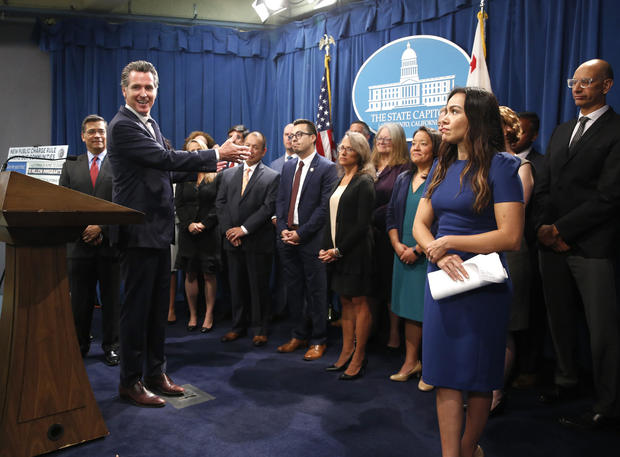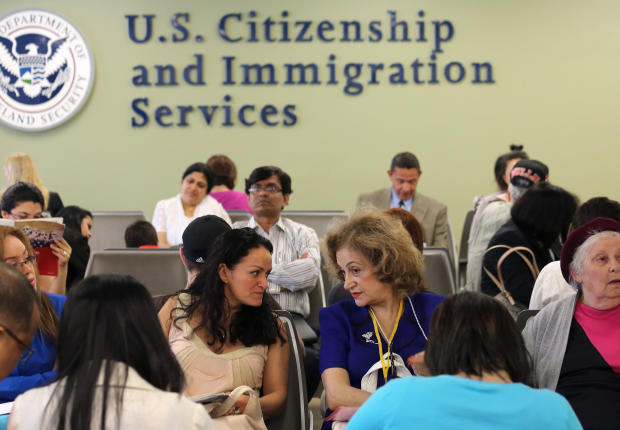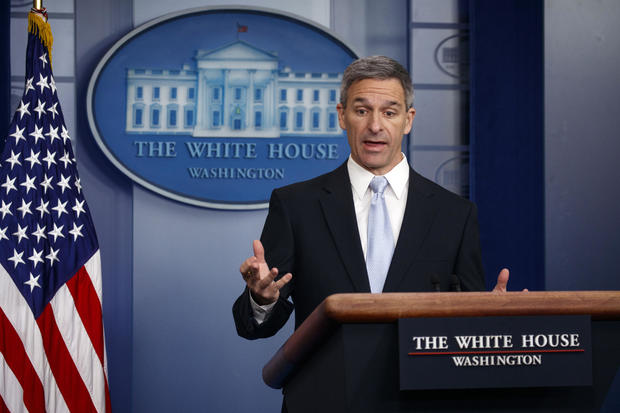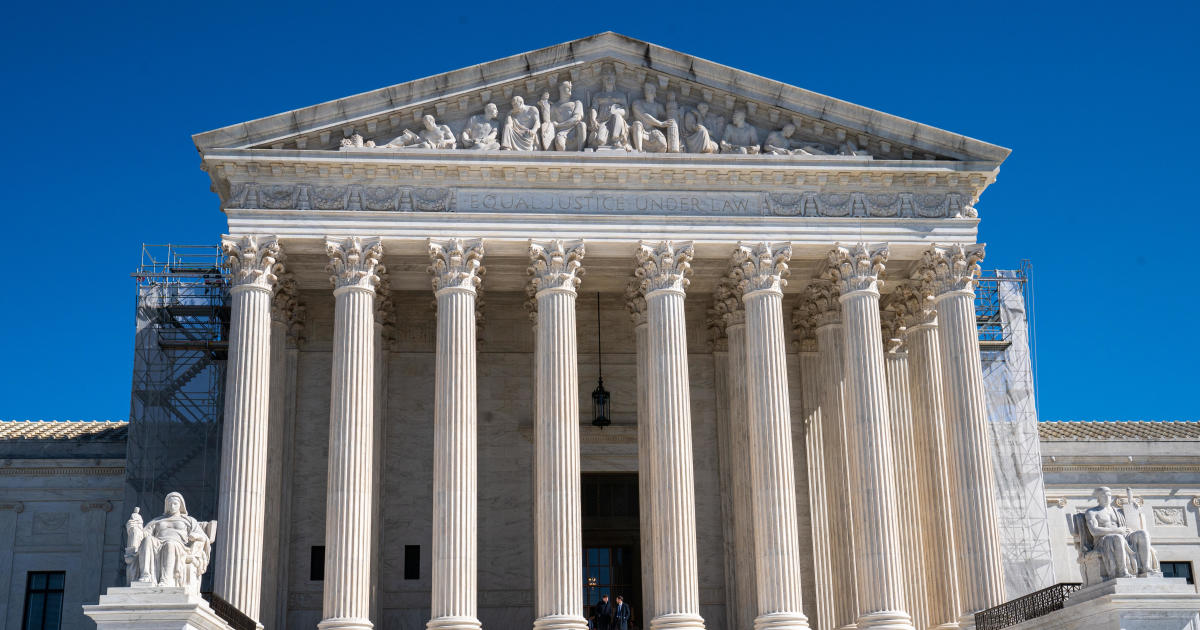Courts block Trump rule to deny green cards and visas to low-income immigrants
Washington, D.C. — Three federal courts on Friday blocked a sweeping regulation that would've made it easier for the Trump administration to reject green card and visa applications filed by low-income immigrants whom the government determines are or might become a burden on U.S. taxpayers.
Judge George Daniels of the U.S. District Court in Manhattan issued a preliminary nationwide injunction prohibiting the administration from enforcing the so-called "public charge" rule just days before it was slated to take effect on Tuesday. A federal judge in Washington state also blocked the regulation nationwide, while a third district court judge in San Francisco said the administration could not enforce the rule within the jurisdiction of the 9th Circuit Court of Appeals.
The decisions represent yet another defeat in court for the White House and its concerted campaign to dramatically overhaul the nation's legal immigration system. They also signify a major legal triumph for a coalition of advocacy groups and Democratic-led states, counties and cities that challenged the rule through nearly a dozen lawsuits in federal courts across the country.
Daniels in his order faulted the government for not adequately explaining why it was changing the definition of a "public charge" or why the change was needed. "The Rule is simply a new agency policy of exclusion in search of a justification," he wrote in his ruling. "It is repugnant to the American dream of the opportunity for prosperity and success through hard work and upwards mobility."
Make the Road New York, a pro-immigrant group and one of the leading plaintiffs in the New York lawsuit, praised Daniels' decision. "Today's decision marks a major defeat for the Trump administration's unlawful tactic to impose a racist wealth test on our immigration system," the group's co-executive director Javier Valdés said in a statement.
Meanwhile, Ken Cucinelli, Mr. Trump's top official at U.S. Citizenship and Immigration Services (USCIS), the agency which would've implemented the rule, defended the legality of the regulation. "An objective judiciary will see that this rule lies squarely within long-held existing law," Cucinelli said in a statement in response to the rulings on Friday.
The controversial regulation would give immigration caseworkers even more leeway to deny applications for green cards and visas filed by legal immigrants who use certain government benefits or whom authorities determine will rely on welfare programs in the future.
For decades, the U.S. has asked most green card and visa petitioners to prove they won't be a "public charge" — or an economic burden — on the country. The term was first codified in U.S. law in 1882, the same year the U.S. enacted the Chinese Exclusion Act, which barred the entry of Chinese laborers on the premise that they jeopardized "the good order of certain localities."
In the late 1990s, the Clinton administration issued guidance saying only cash benefits could be considered when determining whether an immigrant could be a "public charge." The Trump administration's proposal, however, would substantially expand this centuries-old term by broadening the type and amount of benefits that count against immigrants seeking to stay or move to the U.S.
Under the new regulation, caseworkers would consider enrollment in the widely used Supplemental Nutrition Assistance Program (SNAP), certain federally funded Medicaid benefits and a variety of forms of government-subsidized housing, including the popular Section 8 vouchers. Officials would deem an immigrant a "public charge" and deny the application if they determine he or she is more likely than not to use one of the considered benefits for 12 months or longer over the span of three years.
Caseworkers would also take into account the petitioner's age, educational skills, English language proficiency and health to determine whether they are likely to rely on the government for support. On certain occasions, those deemed a "public charge" could post a bond for an amount no less than $8,100.
The rule would not affect asylum seekers, refugees or holders of special visas for Iraqi and Afghan nationals who helped U.S. forces in those countries.
Since a draft executive order leaked in 2017, the proposed changes to the nation's immigration system have elicited withering criticism from immigrant advocates across the country. When a draft of the rule was published late last year for a 60-day period of public review, it received more than 260,000 comments, most of them from individuals, organizations and jurisdictions opposed to the regulation.
Critics have said the rule will disproportionately affect low-income immigrants of color and punish them for being poor.
Even though the rule has not been implemented yet, researchers have already detailed a "chilling effect" among immigration communities, including in mixed-status households where some family members are undocumented immigrants, while other are permanent residents and U.S. citizens.
According to one study, talk of the rule, along with confusion over which benefits will be consider, has prompted some immigrant families — including U.S. citizens — to avoid or drop food, medical and housing government benefits out of fear that enrollment would jeopardize immigration petitions filed by family members.
Administration officials and immigration hardliners have strongly defended the rule, arguing that it will foster "self-sufficiency" among immigrant communities. Cuccinelli, who unveiled the final rule in August, even offered an alternative line to "The New Colossus" poem inside the pedestal of the Statue of Liberty to advocate for the regulation.
"Give me your tired your poor who can stand on their own two feet and who will not become a public charge," he told NPR in August. The original sonnet reads, "Give me your tired, your poor, / Your huddled masses yearning to breathe free."
The State Department last year expanded "public charge" considerations used by consular officers to grant or reject visa applications. The White House budget office is also currently reviewing a proposed Justice Department regulation that would allow the U.S. to deport immigrants deemed a "public charge" under the new guidelines of the USCIS rule that was blocked on Friday.
Earlier in the month, the administration announced that it is preparing to reject visa applications from immigrants the government determines will not be able to pay for health insurance or cover health care costs in the U.S. The new requirement is set to go into effect November 3.







